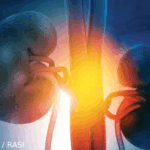Long-term use of corticosteroids is associated with numerous adverse effects, particularly in children, but guidance is lacking on how to manage low-dose prednisone in clinically quiescent disease. In The Great Debate at ACR Convergence 2025—Corticosteroids in Pediatric SLE: Slay or Stay, two pediatric lupus experts took to the stage to explore this important topic.









